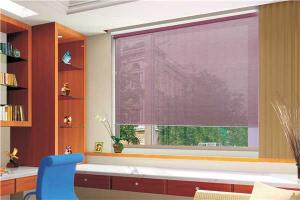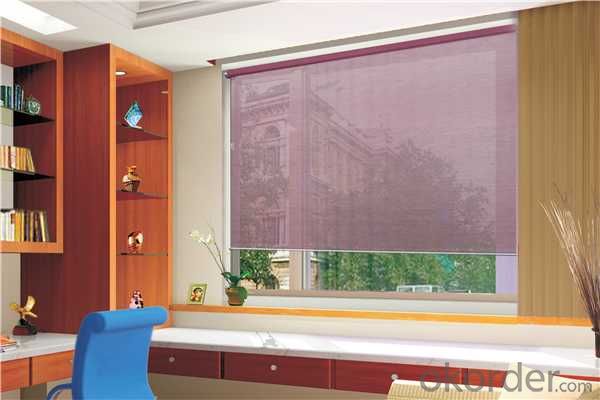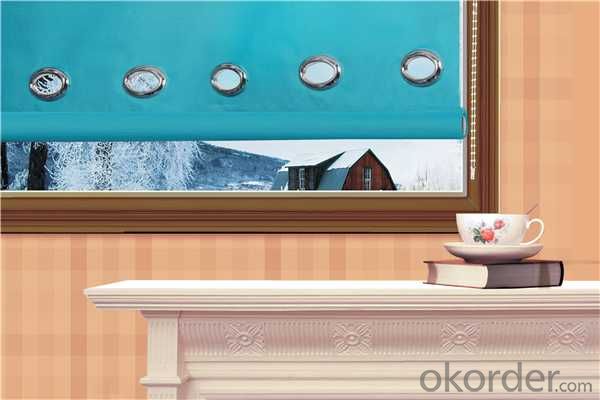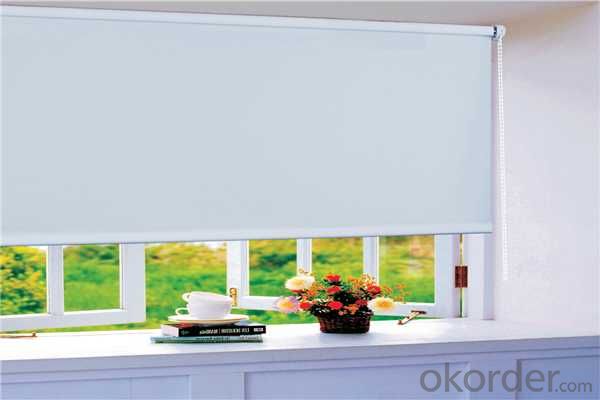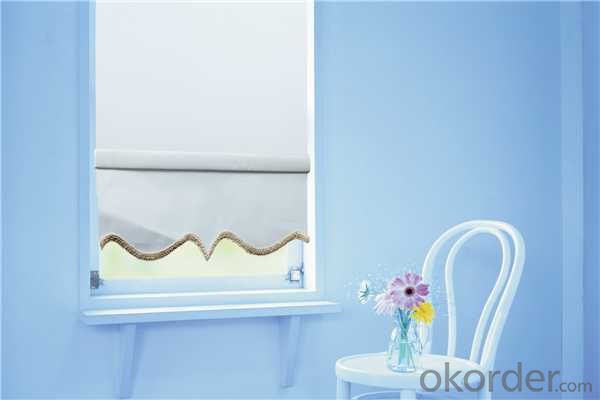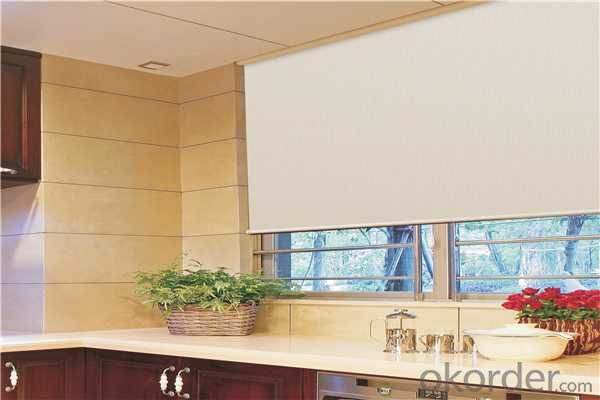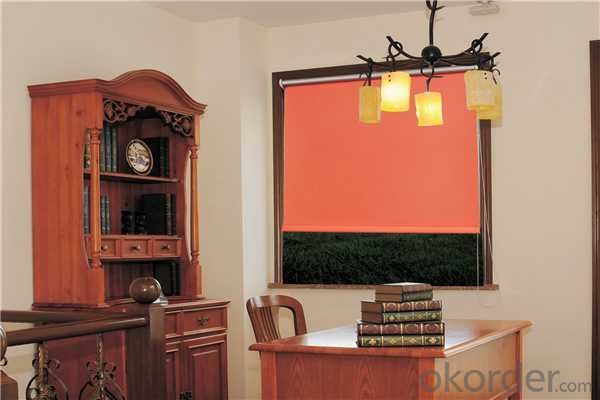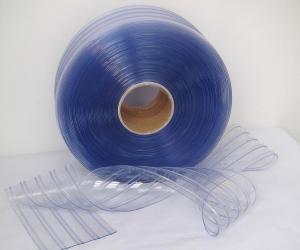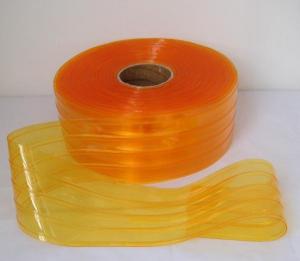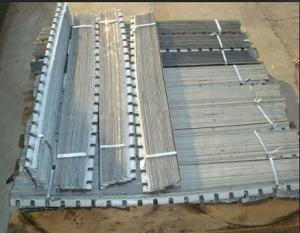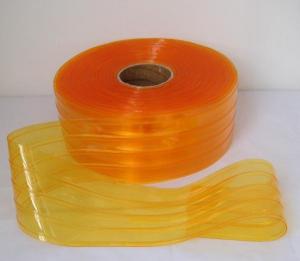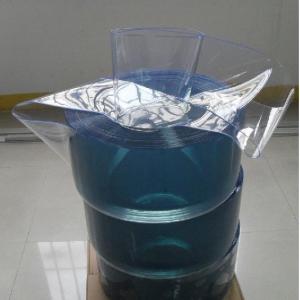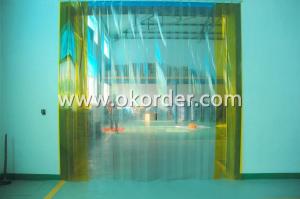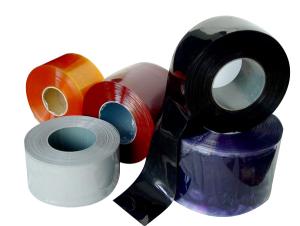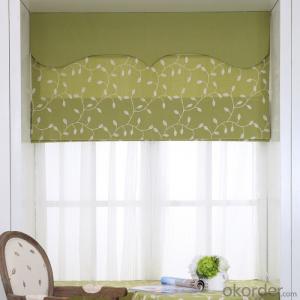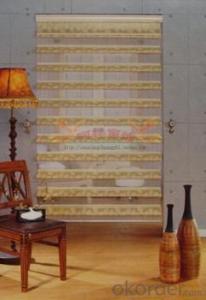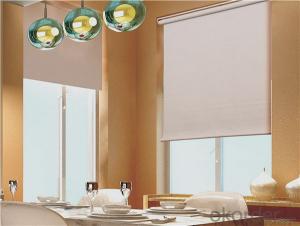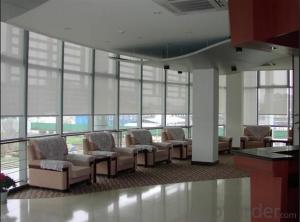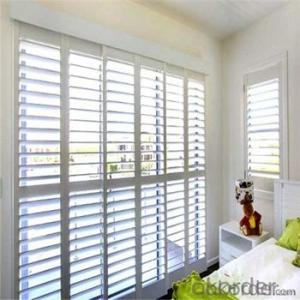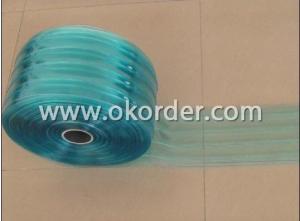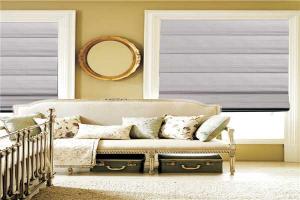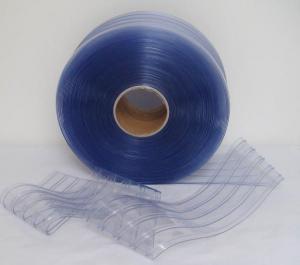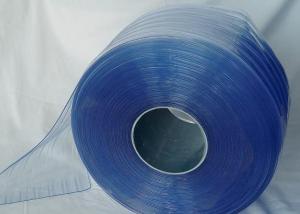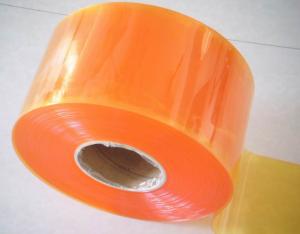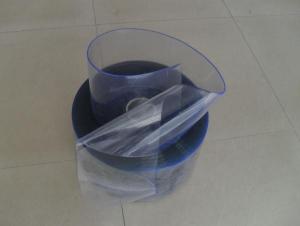Sunscreen Roller Blind Curtaion Used For Office
- Loading Port:
- Ningbo
- Payment Terms:
- TT or LC
- Min Order Qty:
- 1000 m
- Supply Capability:
- 500000 m/month
OKorder Service Pledge
Quality Product, Order Online Tracking, Timely Delivery
OKorder Financial Service
Credit Rating, Credit Services, Credit Purchasing
You Might Also Like
The curtain could be used in home and office for decorating or shading. The material of products in our company is eco- friendly and durable, and the UV-protection for this goods is strong. It's easy to install and disassemble to clean. And it looks quite beautiful and practical. The main materials for curtain are polyester and non-woven cloth, its track is aluminum and the snap is plastic.At the same time, Material, color and size can be customized as customer's demand.
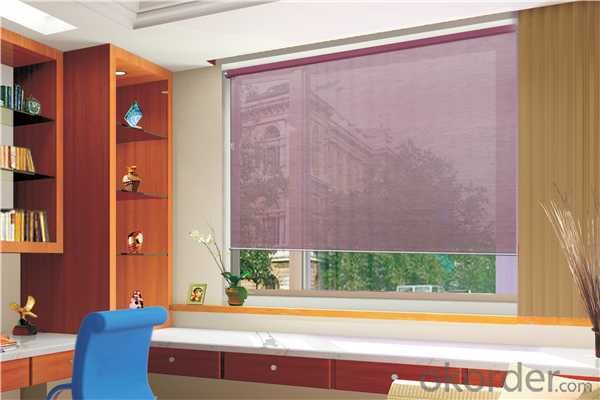
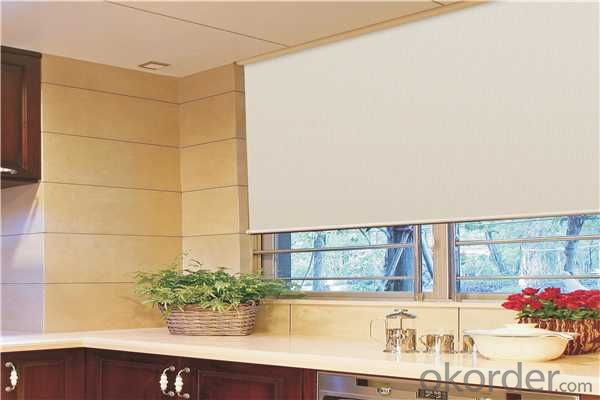
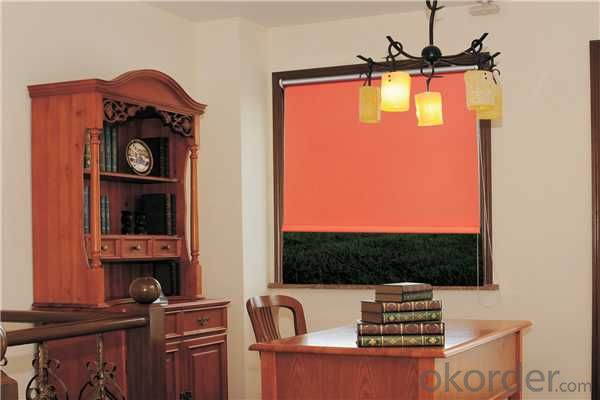
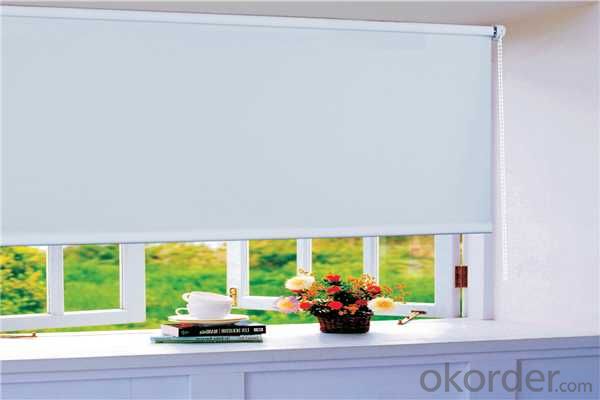
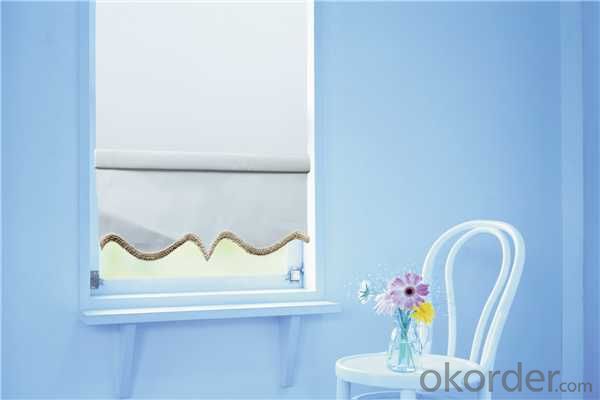
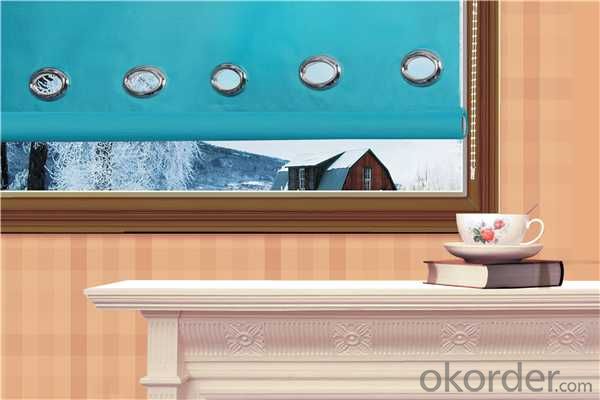
- Q: Can plastic parts in home appliances be affected by exposure to strong electromagnetic fields?
- Yes, plastic parts in home appliances can be affected by exposure to strong electromagnetic fields. Electromagnetic fields can generate heat in plastic materials, leading to warping, melting, or even complete failure of the plastic components. Additionally, strong electromagnetic fields may induce electric currents in the plastic, causing electrical shorts or interference with the appliance's functioning.
- Q: Are there any safety concerns with plastic parts in rice cookers?
- Yes, there can be safety concerns with plastic parts in rice cookers. Plastic components may release harmful chemicals such as BPA (Bisphenol A) or phthalates when exposed to high temperatures, potentially contaminating the cooked rice. It is important to choose rice cookers with BPA-free and food-grade plastic materials to ensure safety.
- Q: How does the texture of plastic used in home appliances affect their usability and grip?
- The texture of plastic used in home appliances significantly affects their usability and grip. A smooth texture can make it challenging to handle and grip the appliance securely, especially when dealing with wet or slippery conditions. On the other hand, a textured or rubberized surface provides better traction, enhancing grip and overall usability. It ensures that the appliance remains firmly in hand, preventing accidental slips or drops, thus improving safety and convenience during use.
- Q: How does the scratch resistance of plastic parts in home appliances affect their appearance?
- The scratch resistance of plastic parts in home appliances directly affects their appearance by preserving their overall aesthetic appeal. When plastic parts are resistant to scratches, they maintain a smooth and flawless finish, enhancing the visual appeal of the appliance. On the other hand, if the plastic parts are easily scratched, their appearance may become dull, worn out, or even damaged, which can significantly impact the overall attractiveness of the appliance. Therefore, by having scratch-resistant plastic parts, home appliances can maintain a pristine and visually pleasing appearance, contributing to their overall quality and longevity.
- Q: How does plastic contribute to noise reduction in home appliances?
- Plastic contributes to noise reduction in home appliances by acting as an effective sound insulator. It helps dampen the vibrations and echoes produced by the internal components of the appliance, thereby reducing the overall noise generated during operation. Additionally, plastic materials can be designed to absorb and block out specific frequencies of sound, further enhancing the noise reduction capabilities of home appliances.
- Q: How does the thermal expansion of plastic used in home appliances affect their dimensional stability?
- The thermal expansion of plastic used in home appliances can negatively affect their dimensional stability. As plastic heats up, it expands, and when it cools down, it contracts. This expansion and contraction can cause the plastic to warp, distort, or even crack over time. Therefore, it is crucial for manufacturers to consider the thermal expansion properties of plastic and incorporate design strategies to minimize its impact on the dimensional stability of home appliances.
- Q: Are there any specific transportation guidelines for plastic parts in home appliances?
- Yes, there are specific transportation guidelines for plastic parts in home appliances. These guidelines typically include proper packaging to ensure the protection and prevention of damage during transportation. This may involve using suitable cushioning materials, securing the parts to prevent movement, and ensuring they are adequately labeled to indicate their fragile nature. Additionally, specific instructions may be provided for loading, unloading, and handling the appliances to minimize the risk of damage to the plastic parts.
- Q: Are there any specific regulations regarding the use of plastic in home appliances for medical purposes?
- Yes, there are specific regulations regarding the use of plastic in home appliances for medical purposes. These regulations ensure that the plastic used in such appliances meets certain safety and quality standards, and they may vary depending on the country or region. Compliance with these regulations is crucial to ensure the effectiveness and safety of medical devices used in home settings.
- Q: What are the most common home appliances made of plastic?
- Some of the most common home appliances made of plastic include blenders, toasters, coffee makers, vacuum cleaners, and fans.
- Q: How are home appliance plastics different from other types of plastics?
- Home appliance plastics are specifically designed to meet the unique requirements of home appliances, such as durability, heat resistance, and electrical insulation properties. These plastics undergo specialized manufacturing processes to ensure they can withstand the demands of everyday household use. Unlike other types of plastics, home appliance plastics are engineered to provide exceptional performance and longevity in the specific context of domestic appliances.
Send your message to us
Sunscreen Roller Blind Curtaion Used For Office
- Loading Port:
- Ningbo
- Payment Terms:
- TT or LC
- Min Order Qty:
- 1000 m
- Supply Capability:
- 500000 m/month
OKorder Service Pledge
Quality Product, Order Online Tracking, Timely Delivery
OKorder Financial Service
Credit Rating, Credit Services, Credit Purchasing
Similar products
Hot products
Hot Searches
